New University of Kansas Welcome Center’s Microgrid Engenders Enthusiasm
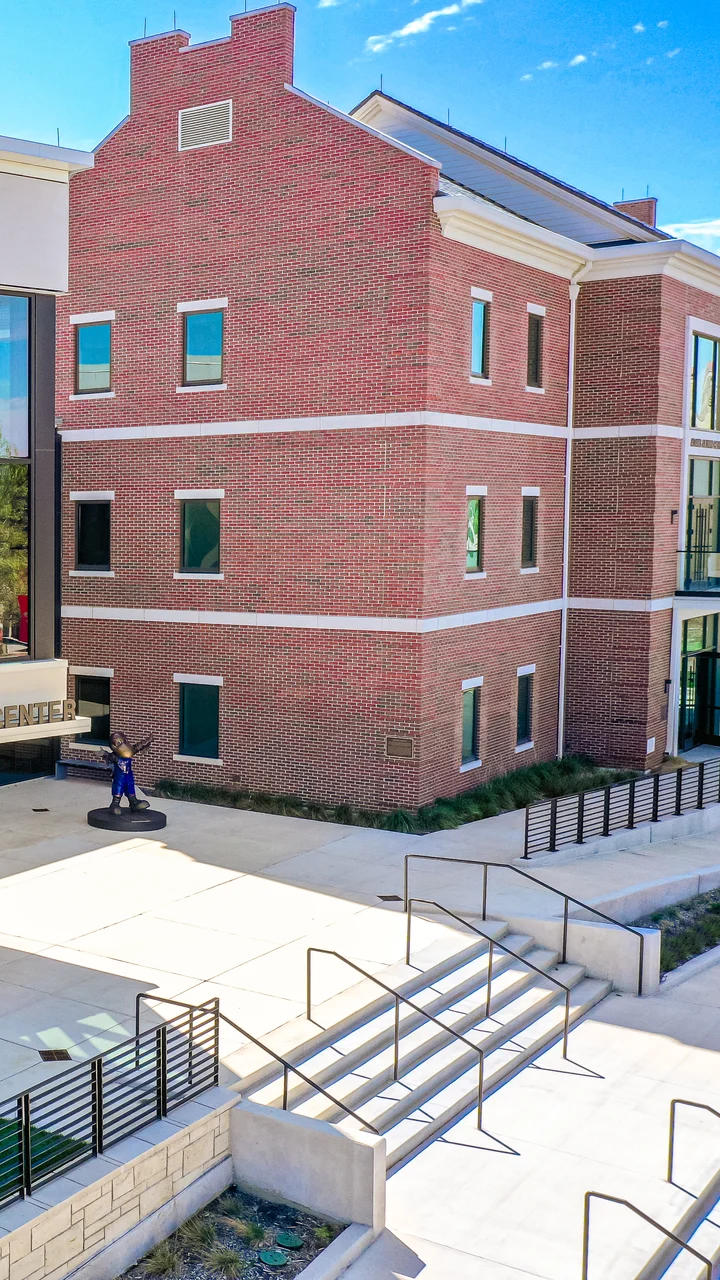
- Project Name
- Jayhawk Welcome Center Microgrid
- Location
- Lawrence, KS
- Client
- University of Kansas
A building that generates its own power embodies innovation and technology, producing its own electricity while spawning enthusiasm for its daily users. Couple that with the purpose of the building – the recruitment of new university students – and you have a formula for a unique facility that’s a testament to sustainability and the future of energy.
Welcome to the University of Kansas’ new Jayhawk Welcome Center – now the launching point for campus visits for prospective students and their families. Black & Veatch, which has more than a century of ties to the university, donated in-kind the design, materials, and the installation and integration for the building’s microgrid made up of a rooftop solar array and battery energy storage system (BESS).
While the purpose of the 30,000-square-foot facility is to welcome prospective students for tours of the Lawrence campus, the building also is the center of many events and programs for current students and the community at-large. In its first year, it clearly has exceeded expectations.
“The number of events in this space has been astronomical,” said Douglas Girod, the university’s chancellor. “I don't think we really anticipated how much it would be utilized and embraced by the community. The Jayhawk Welcome Center has really transformed our campus.”
Built adjacent to the Adams Alumni Center, it symbolizes the complete lifecycle of a Jayhawk student, from initial recruitment to graduation and potential ties post-graduation via the alumni association. It is reflective of the university’s desire to equip its engineering school talent with the best in innovative technologies. It also demonstrates the legacy ties between Black & Veatch and the university, where the company’s two founders – Ernest Bateman “E.B.” Black and Nathan Thomas “N.T.” Veatch – received their engineering degrees. Lastly, the building is designed for both the use and benefit of the community, as the bond between the university and its Lawrence citizens is inseparable.
Microgrids Embody Resiliency, Reliability
The microgrid designed by Black & Veatch is a 58-kilowatt solar system with a 30-kilowatt/hour battery storage system. Jennifer Cahill, the project director with Black & Veatch, said the system gives the university many options for how the power is used.
“They can use the solar to power the building, or they can put that power back on the grid,” she said. “Alternatively, they can charge the batteries and then use that for backup power when needed.”
Since microgrids by nature personify resiliency, reliability, and sustainability – all while helping an organization meet its decarbonization targets – Black & Veatch promotes their benefits to a wide range of entities.
“You can use microgrids to control your operating costs,” Cahill said. “If your utility has a time-of-use plan, you can use the solar or the batteries to power a facility at the most optimal time. Or if you encounter an emergency such as an outage or a weather event, you still have available power. If you have a backup system, then you can use that for restoring power.”
Girod, the chancellor, said that during the early planning stages, it became obvious that students wanted the welcome center to encompass sustainability and innovative technology.
“You know, this generation is so passionate about the climate, about energy, about how we're going to create a sustainable future. So bringing in an element of sustainable energy into this project really was extremely attractive to the students who were engaged in the process, and that really became a core element to the design concept.”
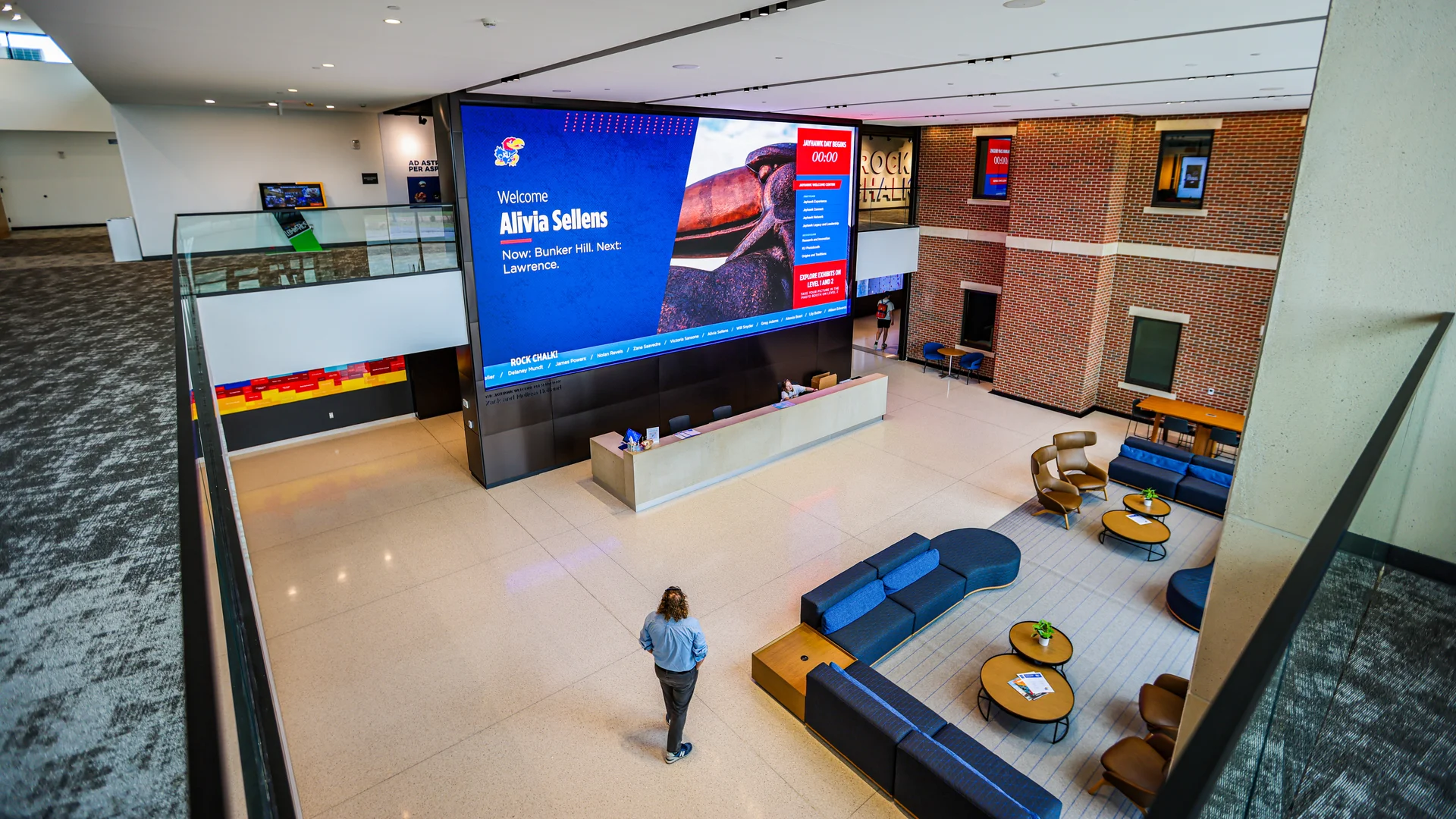
The Welcome Center
The Jayhawk Welcome Center now sees close to 1,500 students and families each week for campus visits. The building contains many unique and interactive exhibits for visitors, extolling campus life and the university’s legacy, achievements, origins, networks, and traditions. There are various dashboards that tell students what’s going on within the building, including how much power is being produced at that moment.
“We know how critical the campus visit is in college choice,” said Heath Peterson, the KU Alumni Association’s president. “We wanted to create a space where all Jayhawks and visitors feel like they belong. The feedback from students and families has been amazing. It is making a difference in the recruitment of prospective students as future Jayhawks.”
He added that the welcome center is becoming a hub for a lot of campus activities: “Some of the highest profile, most signature events this past year have been hosted right here in this space.”
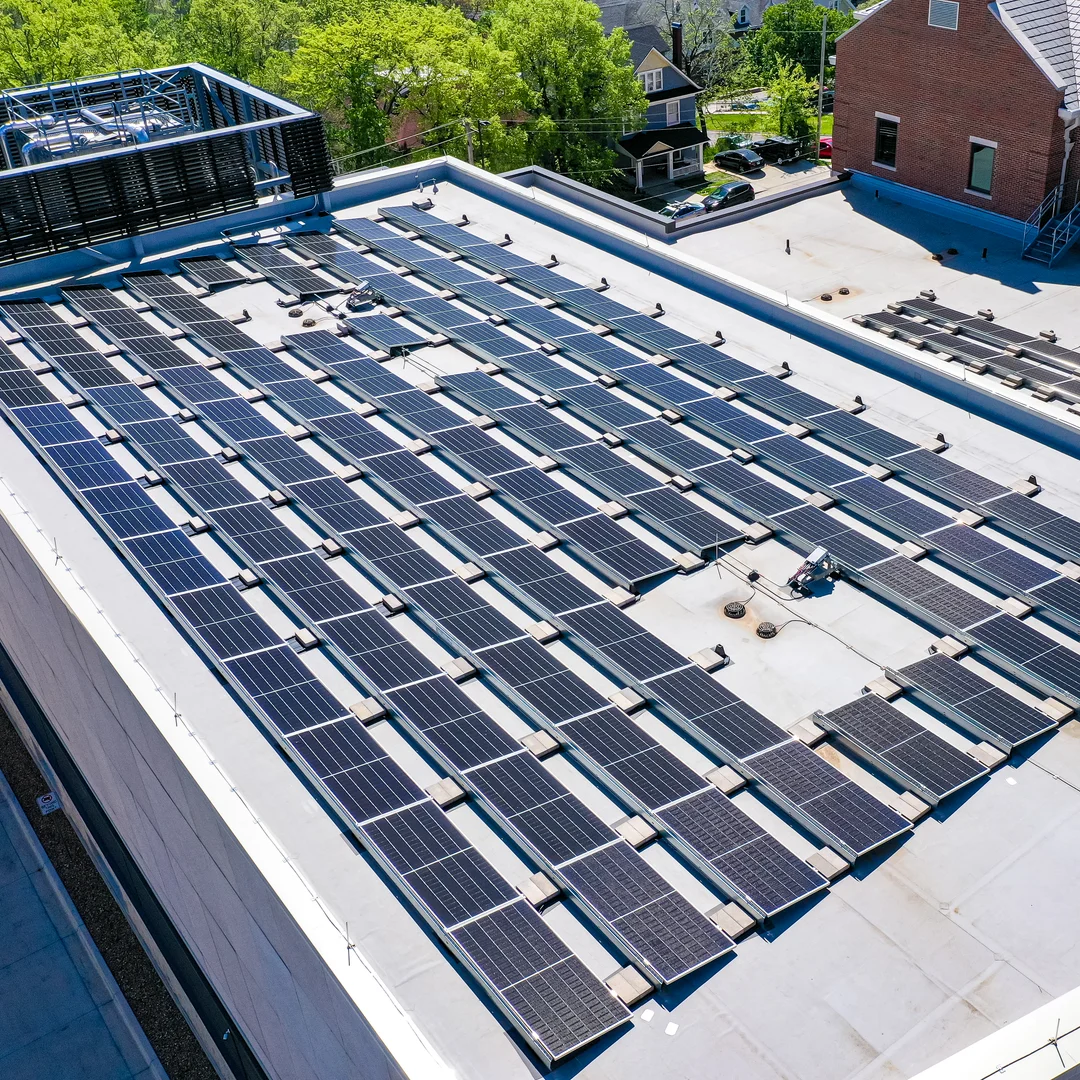
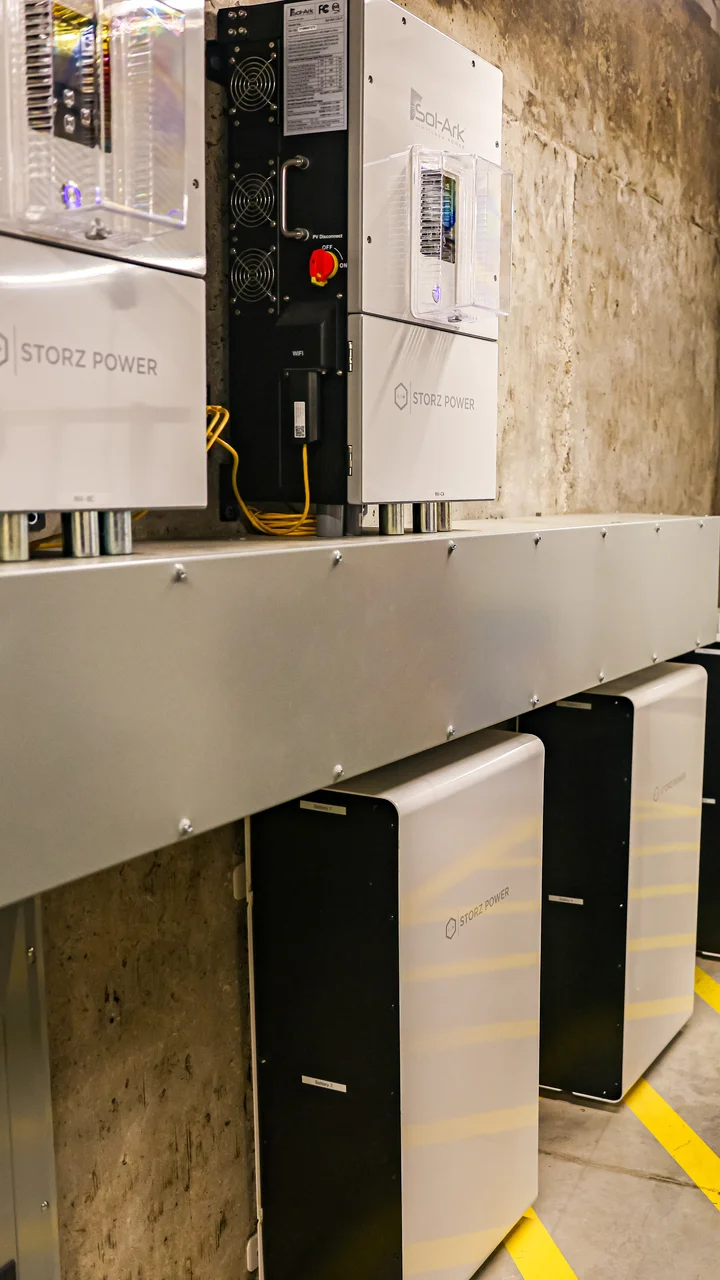
A Legacy Between KU, Black & Veatch
It’s no exaggeration to say that thousands of University of Kansas graduates have come to work for Black & Veatch over the past century. No graduates were more central than Black and Veatch, the two who founded their namesake company in 1915. Of the company’s eight senior leaders, five have been Jayhawks. Beyond engineering, University of Kansas graduates have filled key roles in finance, communications, information technology, sales, business management and more.
Having received his bachelor’s and master’s degrees in engineering from the university more than three decades ago, Mike Orth now is president of Black & Veatch’s governments and communities – and technology, commercial and industrial – market sectors. He serves on the board of the university’s engineering school and was instrumental in securing the in-kind donation for the microgrid.
“I have a big investment in KU, personally and professionally,” Orth said. “I am a proud Jayhawk, as are both of my kids. It's done a lot for me as an individual, as well as my family, and so I want to give a little of my time back.”
He said the welcome center stands as a monument of cutting-edge technology and innovation.
“I think it lives and breathes our company’s mission of ‘Building a World of Difference’ every day,” Orth said. “It's a great testament to the things that we can do, and it's a great way to illustrate our capabilities to the young people and their parents. We’ve demonstrated our commitment to sustainability, and it allows us to walk the walk.”
In keeping with its desire to make this a community project, Black & Veatch hired local contractor Cromwell Solar for the installation of the rooftop solar and battery storage system.
“We employed a ballast system, which is really good for the roof because it doesn't have any penetrations to hold down the panels,” said Ben Soukup, Cromwell’s senior solar designer. “It is a completely gravity-loaded system. The main benefit is that it doesn't have any effect on the roof warranty.”
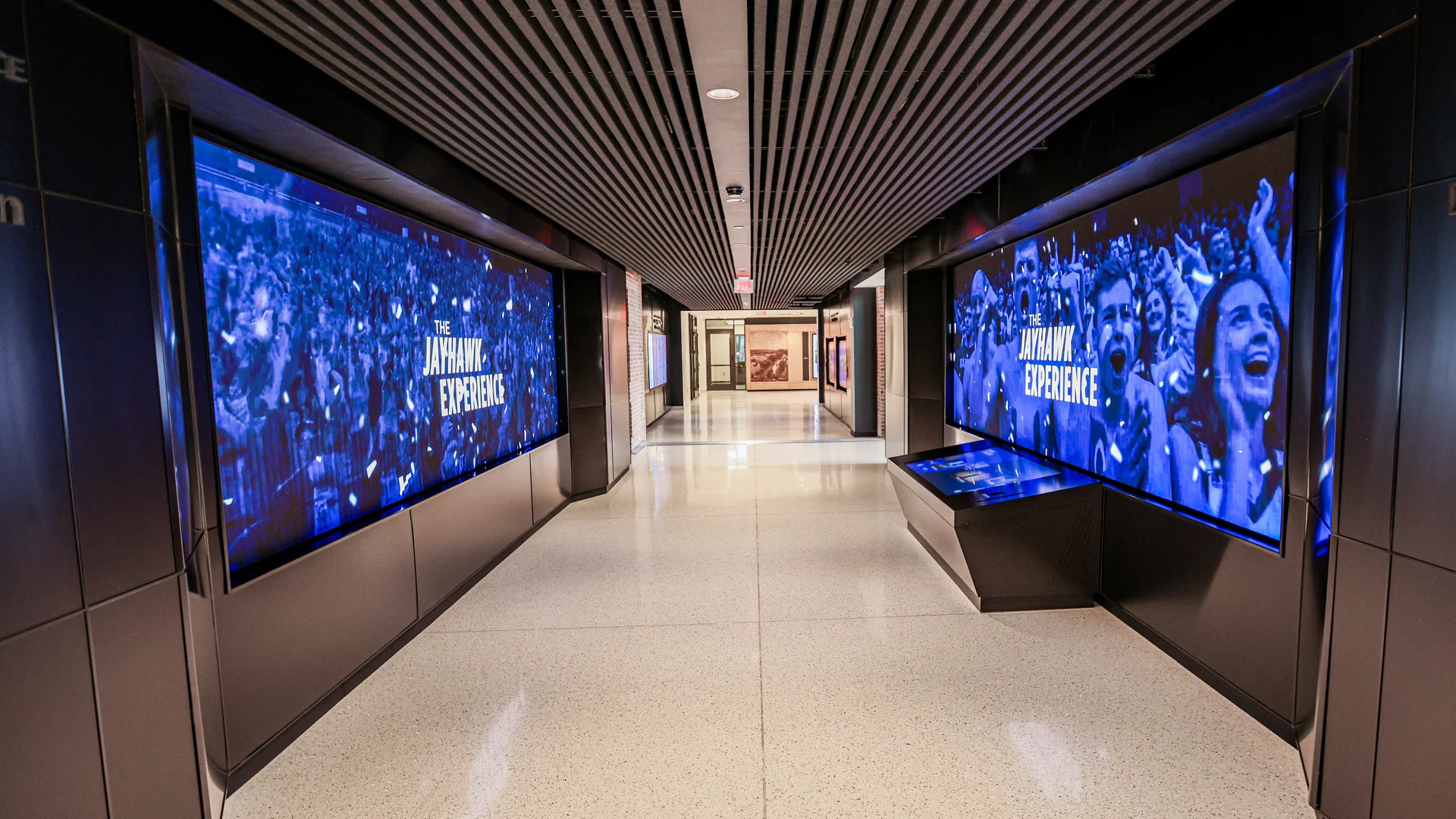
A Building that Tells a Story
The welcome center is a special building, with innovative technology at its core. It serves a wide audience with many different needs, yet all seem to be extremely pleased with the outcome. Whitney Jones, architect and project manager for the university’s facilities planning and development arm, said students find the welcome center – and its many exhibits and the overall design -- very relatable.“They can start to visualize how they fit in here,” she said. “New students are actually seeing how they have a place in the university.”To Peterson, "it’s a storytelling vehicle. It is an experience.”
Contact us
Seeking a partner with proven expertise?
Let's talk
